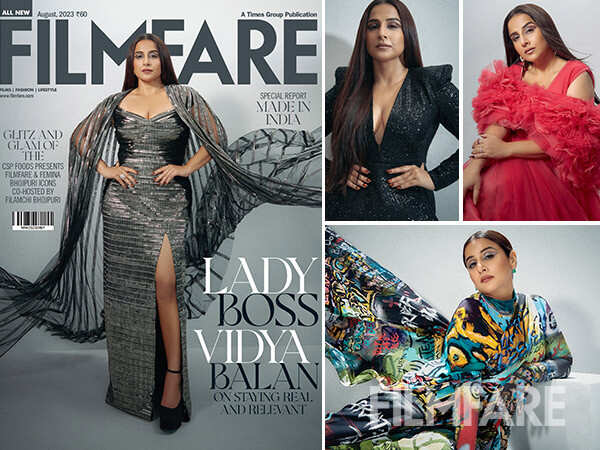
Sometimes working with actors can be stressful. You have to second-guess their moods and walk on eggshells trying to make things okay. She’s that rare breed that gives you back the respect they demand. She automatically earns your trust and respect. Perhaps it comes from a place of love. It’s so easy to love VB. Shorn of any artifice, what you see is what you get. She will listen intently while you talk and be interested in knowing more than superficial things. She’s genuinely interested in the process of communication and engagement. And therein also lies her ability as an actor. She’s reached a stage where she’s sure-footed about it. No dithering; no number games to worry about. She practises her craft diligently, and it shows up time and again. Why does she always act from the heart? Why does she connect every single time? What is it about Ms. Balan that reaches the deepest crevices of your memory? Why do you identify with her every single time?
She can be sexual and predatory with a wounded soul, like she was in The Dirty Picture, without any scope for redemption. Or she can offer solace and hope, like she did in Tumhari Sulu. Vidya preys on your worst fears, yet she assuages your soul in Kahani. She can play sexual politics and slay the men in Ishqiya. In her heartbreaks, we see our frailties; in her joys, we seek solace like we did in Paa. She doesn’t get the character; she is the character. She probably doesn’t even know how much hope and love she ignites in the turbulent darkness of the theatre. Her triumph is the triumph of the common woman, your next-door girl who made good. Vidya is the underdog story time and again. And that’s why it hits you in the gut.
No dissembling, no doublespeak. Her art is pure. Her craft is guileless. When she says main kar sakti hai, we all know we can do it too. Through her hopes, we shall soar; through her eyes, we shall see a whole new world. Thank you for just being you.
The actress shows us spaces we haven’t been to and touches more chords in our hearts we didn’t even know existed. Which all adds up to the right time to meet the wonderful Vidya Balan. Excerpts from a wonderful conversation:
She can be sexual and predatory with a wounded soul, like she was in The Dirty Picture, without any scope for redemption. Or she can offer solace and hope, like she did in Tumhari Sulu. Vidya preys on your worst fears, yet she assuages your soul in Kahani. She can play sexual politics and slay the men in Ishqiya. In her heartbreaks, we see our frailties; in her joys, we seek solace like we did in Paa. She doesn’t get the character; she is the character. She probably doesn’t even know how much hope and love she ignites in the turbulent darkness of the theatre. Her triumph is the triumph of the common woman, your next-door girl who made good. Vidya is the underdog story time and again. And that’s why it hits you in the gut.
No dissembling, no doublespeak. Her art is pure. Her craft is guileless. When she says main kar sakti hai, we all know we can do it too. Through her hopes, we shall soar; through her eyes, we shall see a whole new world. Thank you for just being you.
The actress shows us spaces we haven’t been to and touches more chords in our hearts we didn’t even know existed. Which all adds up to the right time to meet the wonderful Vidya Balan. Excerpts from a wonderful conversation:
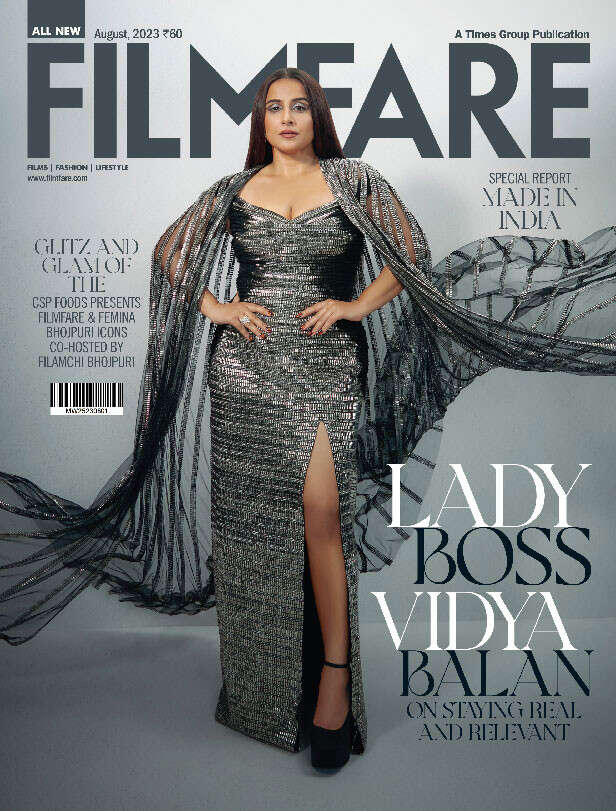
What would a 44-year-old Vidya tell a 24-year-old Vidya today?
(Laughs) I love you. I love you for being you. That sums it all up. At 24, I just got the opportunity to do Parineeta. I landed it when I was 25, and it was released when I was 26. I think there was a burning desire; there was a fire in the belly. Today, when I think of it, I’m like, “What confidence ya?” That is for a girl who comes from a non-film family. I didn’t even grow up watching movies. So for a girl like me, from a middle-class, I’d say not conservative but traditional family, to have gotten to a stage where it seemed like I might get an opportunity because Chakram had already happened in Malayalam.
Chakram got shelved…
Yes. Chakram was with Mohan Lal, Dilip and Kamal (Haasan) Sir in Malayalam. We shot for 15 days, and then Kamal Sir and Mohanlal had a rift. So they called off the film. I was new and didn’t know anyone. I was thrilled to be on set with Mohanlal. I shot with him, and then they suddenly called off the schedule, saying that it might start next month. When I came back to Mumbai, offers started coming in. It was amazing. My mother used to watch films in Malayalam and all, but we never knew directors, producers, or even actors beyond Mohanlal, Mammootty, Urvashi and Shobhana. Producers would
say, “This is the director, these are the actors, so many days of shooting, you’re playing a lawyer...whatever.” I was confirmed for so many films.
Then what happened?
Lal Sir was doing a play at that time, Karnabharam, in Mumbai. He invited us to the show. We went to watch the show, but before that, he called me. It was sweet of him and I appreciate it. He said, “You know, I just wanted to tell you that Chakram is not going to happen anymore.” I was shocked. What’s interesting is that my television show also didn’t get aired. I did a show with the makers of Taara, Vinta Nanda and Raman Kumar. I shot it for eight months. I was in the 11th grade, I was already earning and most importantly, I was acting. The channel they were making it for didn’t take off. That show never aired. I had anger issues because of all this. I remember fighting with my mother a lot those days.
Please continue…
You take out your frustration on the people closest to you. There was a Malayali journalist in Chembur, who used to write for the Malayalam magazines in Kerala. He came home and met us. It was being said, “Oh, she is jinxed.” Lal Sir and Kamal Sir had done eight films together, and they all did well. So they started thinking, “What went wrong this time?” They began to replace me in films. So he said, “I’ll put out a fake story that will get you work.” And I refused to be part of a fake story. I remember that my father was so proud of me at that time. He said, “You know, at this time, anyone would have succumbed, but you didn’t.” There was pride at stake. I was like, “Mujhe bheek nahi chahiye.” I want the real thing, or I want nothing.
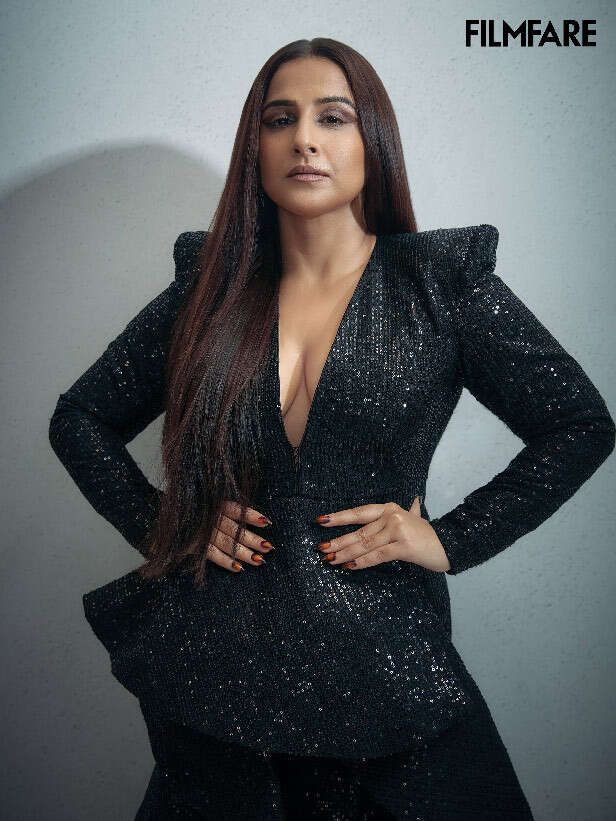
You also signed up with K. Balachander.
I got signed for two films with K. Balachander Sir. We were supposed to go to New Zealand in February. I still remember the date. It was February 11 and there was no news from them. My mom believes in the innate goodness in everyone. I would keep saying, “Why have they not called”, and she would say, “No, they’ll call, and if there’s something, they’ll let us know.” But on February 11, I forced her to call K. Balachander Sir’s daughter, and she said, “Balachander Sir has decided to go ahead with someone else.” I was totally heartbroken. Meghna Gulzar’s first film Filhaal got released that day. I went with a friend to watch the film and then I walked back from Nariman Point to Bandra because I was in such a state. I just had to clear my mind. I was feeling hopeless, I was feeling angry. This is when Dada (Pradeep Sarkar) showed faith in me. We were doing the Euphoria video, we shot through the night, and when we were leaving the next morning, he said, “Tere saath picture banaunga.” By now, I had been ousted from a dozen films in the South. So
I said, “Bohot aaye, bohot gaye, kuch hone waala hai nahi.” But he lived up to his promise.
You must be missing him terribly…
I just wish he had lived longer. In the last conversation we had, he said, “Mere saath picture karegi na?” And I said, “Haan dada.” I was like, “Why is he saying something like this?” And within a month, he was gone. Now, in retrospect, I think he felt like he had created me and I should’ve done whatever he brought to me. But I was like, “If I am not sure about it, how can I do it?” And we shouldn’t do anything that doesn’t match up to or be better than Parineeta. So there were lots of periods when we didn’t speak. What’s bizarre is that there was some connection. I was in Goa on March 22. Ninad Kamat called me for something. I reached back home at midnight, and I thought to myself, “I should call Dada and say, ‘Thank you. Whatever I am and wherever I am today, it’s because of you’.”
I don’t know why I felt that way. I have said that to him lots of times in person, privately, and publicly. My sister’s birthday falls on March 23, and you know how the day takes over. I woke up on the 24th to the news of his death. It was a very hard day.
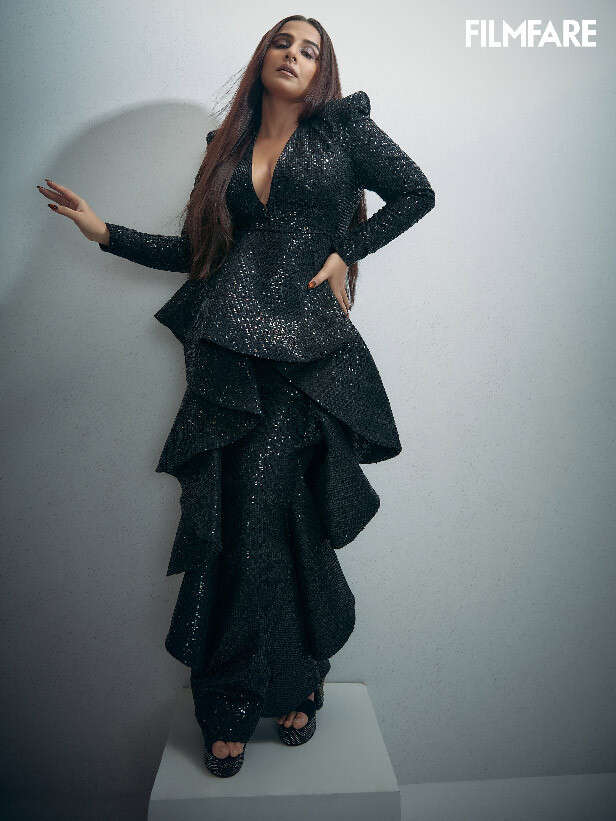
How do you deal with the pressure of maintaining a certain body type? How do you hold on to body positivity?
It happened over time. I was called sexy after I did The Dirty Picture. And the huge commercial success got me so much love. It even got me a National Award. I was being called the female hero and all that. Basically, I was not being Vidya. I was Silk. I was playing a character, and I was okay with it. I am far more comfortable being a character than being myself in public. When I am promoting
the film, I have fun because I am promoting a character. The moment you make it about me, it makes me a little uncomfortable. So I had just done it without thinking. That translated to me being sexy. And I hadn’t been called sexy until then. Suddenly, there was a new me. I had also met Siddharth at that time. He made me feel great. I started accepting my body because of a combination of factors. But the journey had its ups and downs. What happens is that when acceptance comes and you are new to it, you get scared that you will be found out. It’s a kind of imposter syndrome. I’ve gotten over that, and I’m slowly accepting myself the way I am.
Did this fear make you reject your femininity?
It led me to reject my body and reject my femininity. I have always wanted to be better than the boys. I used to pump heavy weights with the boys in the gym in 2005. I used to pump crazy amounts of weight because I wanted to prove I could do it as well as the boys.
What effect did it have?
It harmed me. It led to hormonal issues. It is now through healing that I have learned what it has taught me.
What have your 12 years of self-healing taught you?
In retrospect, one can say, I shouldn’t have done that. But that’s okay. That is what growing up is all about, right? This love and acceptance of my body is still a work in progress. But I have come a long way. I don’t react anymore to comments pertaining to my body. I don’t think it’s anyone’s right to comment on someone’s body. It used to upset me and rile me up. But I am in
a much better place now.
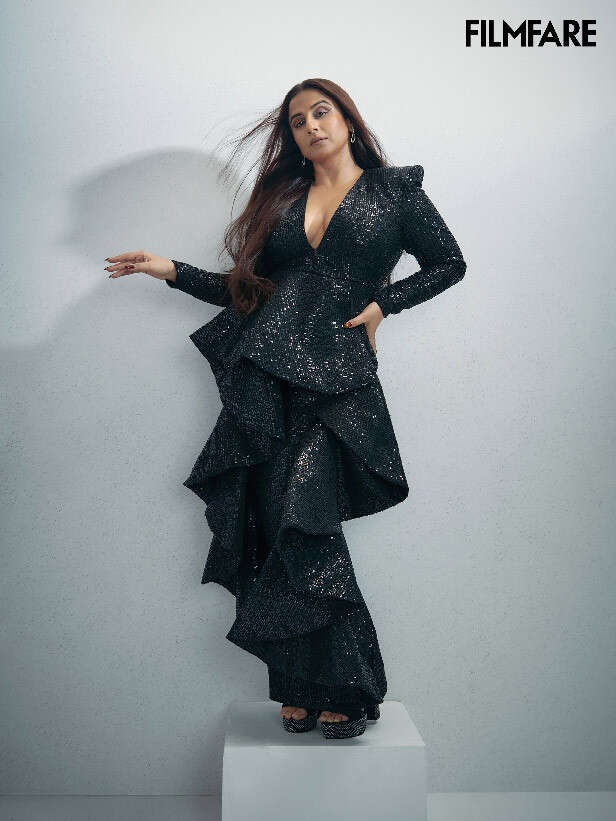
Where did this self-awareness come from?
Healing and just realising this is the body that is keeping me alive even when I am only sending hate its way. The only thing I should be sending its way is gratitude. What am I doing, beating it down, sending it hate, criticising it, telling it to be something else? I have done that to my body for years. My body was responding to what I was sending its way.
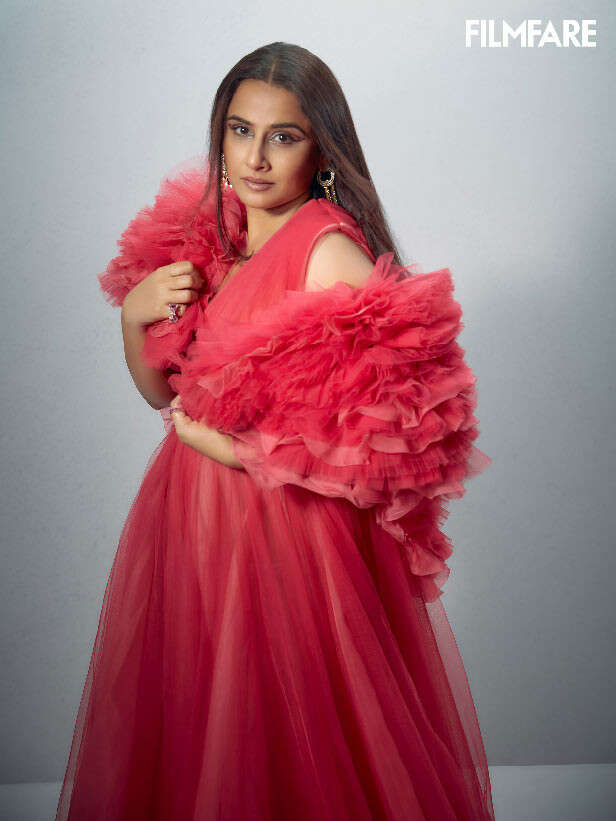
Have you done counselling or therapy at any point?
The healing I do is like therapy. My healer, Nidhu, is someone I talk to from wherever I am in the world. She gives me tools to rewire the way I think. I don’t read comments or anything else on social media. One negative comment you read can harm you. I feel it is important to have someone outside the ambit of your loved ones. Someone who can give you that objective space where the person is just listening. I arrive at realisations myself. At every age and stage, in every society, people have felt judged. But now it has all become public. It’s like everyone is a celebrity. You might not have 100 million followers, but what do your 55 followers say? I think they should just disable comments on social media. But this has also helped people reconnect and re-establish. When I was growing up, my parents would say, “What is this television?” Because they thought it would ruin us. and now it is social media.
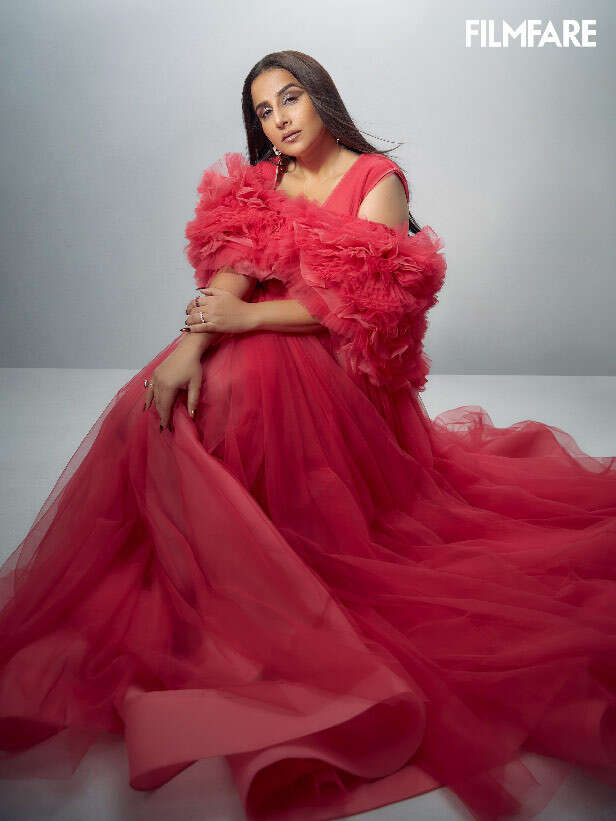
Rejections, bad reviews... Did they put you back in the shell?
I have always been in a shell. But now I’ve started shedding it. My journey as an actor has helped me. This journey where I have gotten to play someone else has let me do things I wouldn’t do as Vidya. I think all these things have just freed me up. It has allowed me to become more like myself, more authentic and more comfortable.
What’s your take on social media?
I have a social media team that posts whatever has to be posted. I do not check anyone’s posts. And I can’t read texts at all; I need my glasses. I get impatient with reading. I like seeing pictures. That is why I enjoy Instagram, and then I like comic reels. Other than that, I am not really on social media. I believe a lot of people get affected by social media, and I feel sad about it.
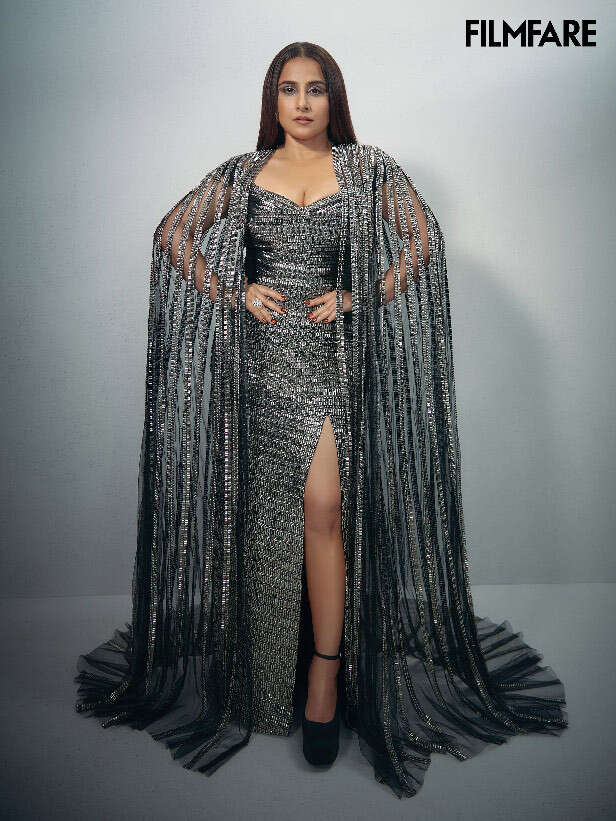
At one point, you were told to do commercial films like your contemporaries. Were you trying to fit in?
I used to think I could sleepwalk through commercial films. I had that arrogance because I had been appreciated as an actor, and
I thought commercial films with a few songs and scenes were no big deal. It was humbling. It was a leveller because you realise that you can’t take anything for granted in this business. The camera catches everything. So it caught me taking a nap in Heyy Babyy and Kismat Konnection, and I have not watched those films since.
You managed to set the course straight.
I realised I should not do films where I was not fully myself. Bhool Bhulaiyaa was a commercial film, but I was fully into it. I remember someone telling me that you have to do younger roles so that your longevity increases because the shelf life of an actress is very short. I felt pressured. Around that time, I was offered Ishqiya. Then someone told me, “But Naseer Saab is so much older than you are; are you going to play opposite him?” and I said, “But this is calling out to me. I have been waiting for such a role. I am hungry for it.” Ishqiya went to every possible actress in the country before it came to me. I grabbed it with both hands, and I loved it. I love being a seductress, a femme fatale. It’s just unusual for me, but also the language of films that were emerging at that time with these kinds of films, Vishal Bhardwaj kind of films, was new. I just said yes to it. I am so glad I paid heed to my gut. I feel that was a rebirth for me as an actor. This is what I am here to do; everything else will follow. I was not a teenager. I don’t think I was a teenager even when I was one. My mother would always say, “You were never a bud; you were already a rose.” Ishqiya was a turning point for me. Sometimes I feel that when you feel stuck, all you have to do is take a turn.
Have you ever felt regret after rejecting a film?
I have said no to a couple of films, and I think I have made good decisions. But in those films that did well, I felt like, “Oh, the other heroine has done it better than I could have, which is why it turned out to be better.” I don’t think I ever regretted not doing a film. I have regretted doing some films for the reasons I did them. I never had long associations with anyone in the business. It is now happening. I am working with directors for the second time. I remember when we were doing Bobby Jasoos, a couple of detective films starring male stars were also announced. It had gotten into my head that I was being called the fourth Khan. And I thought that before the guys did detective films, I should finish mine quickly. I feel somewhere we did the film injustice by doing that. I take accountability for wanting to do it because I wanted it to be released before the detective films starring male stars got released.
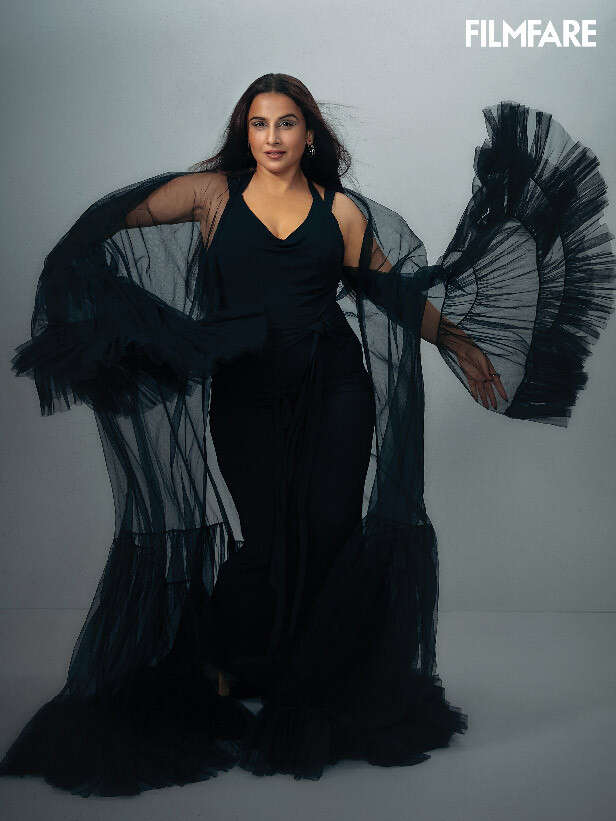
What attracts you to a film?
I always want to feel hope at the end of a film. I love films that make you feel happy and joyful. They should have songs and dance and colours and drama, the Indian way. I am looking to do joyful stuff. I am done with intense stuff. OTT is full of it, and then the comic content is not funny on OTT. Dos and don’ts keep changing, but at this point, I want to do happy stuff. Things that I feel happy doing, living through, or telling, and people will be happy to watch. Naach gaana is also something I would love. I miss lip-sync. After a long time in Rocky Aur Rani Kii Prem Kahaani, I saw lip-syncing. I was so happy. It’s a proper Hindi film.
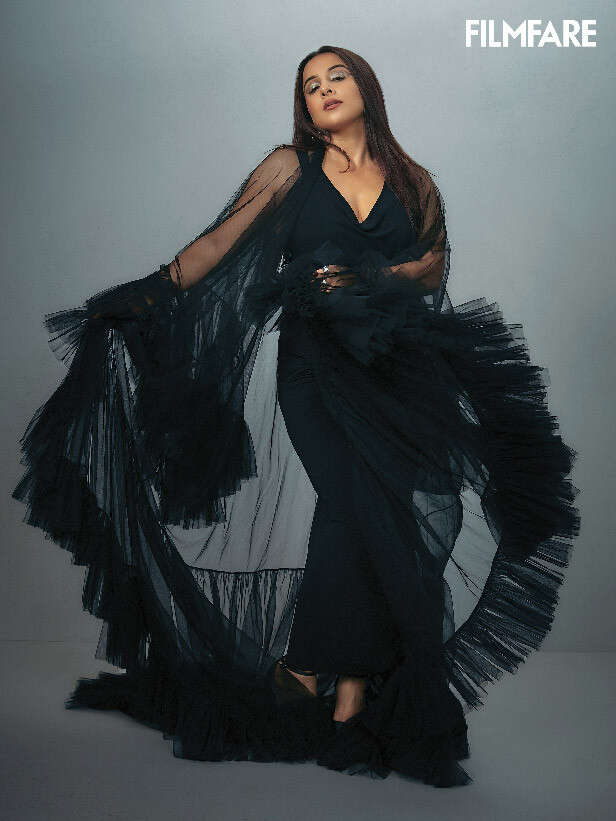
You played a sleuth, a lesbian and all sorts of wonderful characters. Have they impacted you in any way?
Every character impacts me. I used to carry my work back home. But I don’t do that anymore. I liked shooting films outside Mumbai because then you are still in that zone, whereas in Mumbai, you come back home and you have to deal with stuff. Your cook is asking you what to cook; there’s an event you can’t refuse; things like that. I still don’t go to most things because, when I am in the middle of a film, I am just incapable of multitasking. I need time to be with myself. You are living a parallel life in a film. It demands that you be someone else; you have to put yourself in that situation where the person is going through that particular day, and then you have to try to make it real. Therefore, it is easier when you are not at home when you are shooting. I was watching Jim Carrey in The Man On The Moon the other day. Carrey totally became Andy Kaufman, the character he was essaying at the time, even off camera. He said in an interview that it was insane, like he started talking and walking like Kaufman. Consversely, playing different characters has brought me closer to who I am. Every character heals a part of me. I realised I wanted to be better than the boys in Bobby Jasoos, while doing one of the scenes where she tells her father, “All I wanted you to say is that I am good.” That she is better than the boys, and so many of us girls go through that, especially today when we are stepping outside to live our dreams and conquer the world.
Is there a stark difference between the male and female gaze?
It is. You know, for men, it is not a lived experience; for women, it is. Just as there is a difference when a female director is telling a male story. It is not a lived experience; it is an imagined experience or an observed experience, and that makes a huge difference. It’s how you see yourself, right?
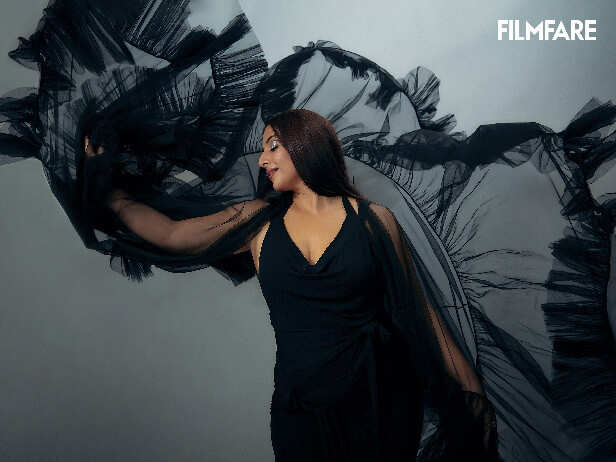
Like you did with Shakuntala Devi, which espoused a woman’s perspective?
As actors, we don’t live through everything we play. But when it is a female experience through a woman or someone who identifies as a woman, I think it makes all the difference. I have worked with enough male directors who are telling a female story. But this is more advanced. Shakuntala, I think, was a difficult film. Because you can get judged very easily for not being the perfect mother. That’s the beauty of the story. You are a math wizard, and you are known as a human-computer to the world, but when it comes to motherhood, people will judge you. I am not imposing my ideas of being a mother because Shakuntala’s director, Anu Menon, is also a mother. She knows how mothers get judged, and I think that allowed her to push the envelope on that.
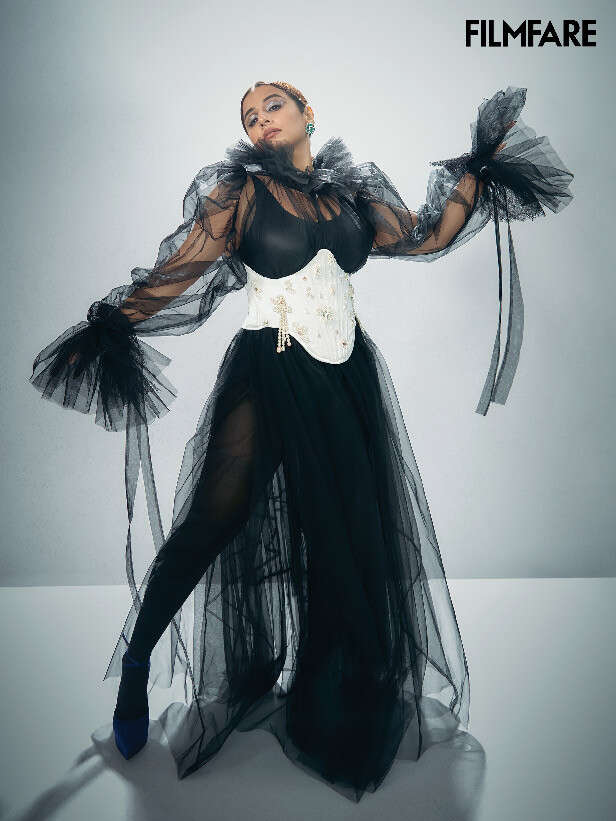
Do you judge your mother or sister?
No, I don’t. But I feel I appreciate and understand my mother far more now than I ever did. They say that when you become a mother, you appreciate and value your own mother more. I am not a mother, and despite that, I feel that I have begun to see how there were ways I did not want to be like my mother, and now those are the ways where I am so much like her. I guess because you recognise those parts in yourself. It is lovely. I do feel motherly towards my sister’s kids. For me, it is a position of luxury where you get the best of the children. You appreciate them far more with time. Even with my sister, I think there are lots of clashes. There are lots of films, especially in Hollywood, that have told those stories where they can’t do with each other and can’t do without each other. At a certain stage, you begin to value those relationships with your significant others. Especially the women in your life become so valuable.
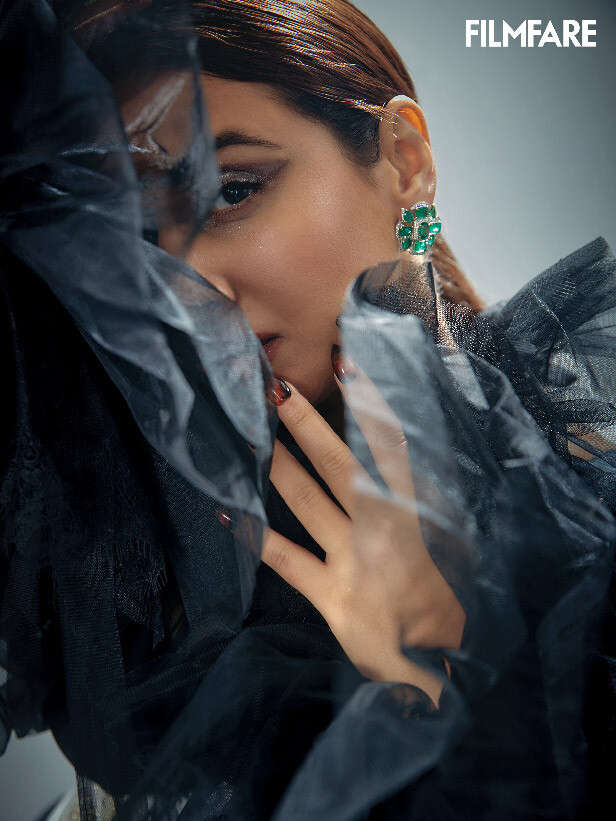
Would you say your relationship with your husband, Siddharth Roy Kapoor, is like a flower?
I think I attracted Siddharth into my life because I was starting to accept who I was. But because I was going through a transition, I would just shoot off. I would say things, sometimes sensational, sometimes to shock, sometimes to have fun, sometimes just because I could. Today, the way I speak is very different from how I used to speak back then. We grow and evolve. That was a phase I was in at this time. I have reached a point today where I don’t even care about shocking people. I guess maybe when you reach 40—I am 44 now—you reach that stage. (Laughs) I still like dirty jokes. I can’t deny that.
After 13 years in a relationship, what has he taught you and changed about you?
He doesn’t react at all, and I am the opposite. He is very calm, which is why I think it’s perfect that he is a producer. I react to everything; I am very expressive. So it balances the good there. What I have learned from him is to take my time and consider possibilities before reacting. He just lets me be me, and that’s a blessing.
Did you have any apprehensions about entering into a relationship with him because he had been married twice before?
I wanted to be with someone, but I never thought I’d get married, and then Siddharth happened to me in a natural progression. He popped the question and I just said yes. It took me some time to accept that I was married. I was fighting it. I wanted to hold on to my individuality, and I was sensitive to everything that everyone said. I felt marriage made a woman invisible. I had seen that happen to my friends. I was so scared. Having said that, I have seen women, for example, my sister, hold their own. They are equal partners. There were more examples, though, of women losing themselves. So I was very scared—I’d be asked to adjust and compromise; I would be domesticated. I was like, “None of that is going to happen to me.” Marriage is a very individual thing. It is beautiful. If you get the right person.
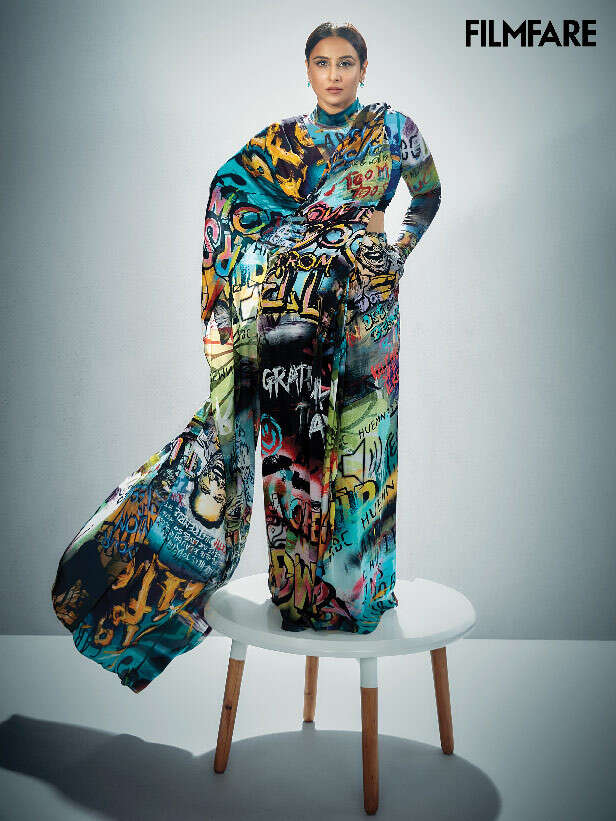
Can you elaborate?
You have to like the person, respect the person, and want the marriage to work and grow together. And that is sometimes beyond your control. Sometimes people grow in different directions. You are lucky if you both grow together. For that, you also have to spend time with each other and understand each other. It’s just that I feel it’s beautiful to have someone to share your life with. Of course, I am telling you the most obvious things. There are so many things I must have learned over the years that I might not be aware of. You do those little things for each other. Sometimes you adjust, sometimes he does; sometimes you compromise, sometimes he does. It is a give-and-take.
Do you sulk after a tiff?
Yes, yes, of course.
Who makes up first?
Depends. I am more prone to fighting. I am more expressive. If something is bothering me, I have to get it out of my system. He processes it; he’ll want to figure it out during his morning walk. I think fights are important.
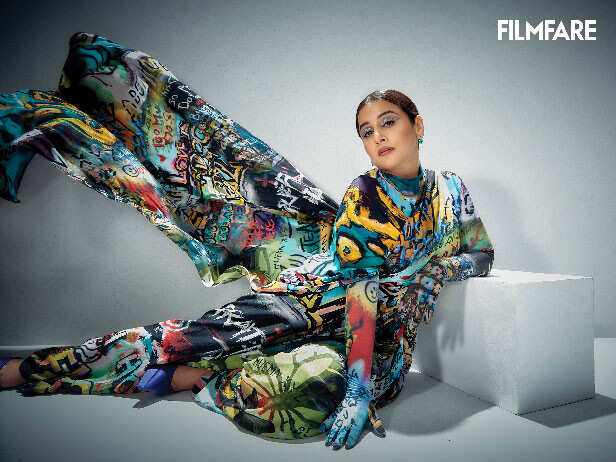
How long do your fights last?
Sometimes for two days. I cannot keep quiet. That is my problem. I have to fight. I’d rather fight than not talk.
So you will sulk?
I do sulk; it is tough for me to sulk for a long time. That is why I have to get it out of my system.
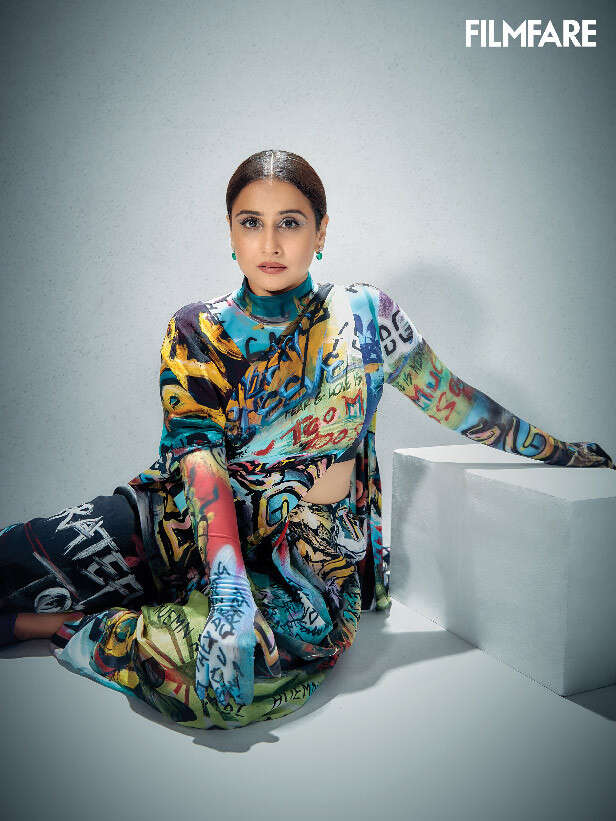
What has he taught you?
To enjoy life. He knows how to enjoy life; he knows how to live well. I didn’t know that at all. I was always a very disciplined South Indian girl. Being with him has taught me how to enjoy life and how to relax. We love travelling together. I have begun to read again. I would be amazed at how he could spend an entire afternoon reading. I would be like, “Oh my god, I haven’t done anything.” But he could enjoy a meal. I can enjoy myself now. We both enjoy tennis, watching shows in London, and just walking around. Neither of us is the shopping kind. It is about experiences. It’s sometimes just that I love talking about everything. I love sharing everything with him. I am like that with my family, too. Then Siddharth came in, and with him, the intensity was greater. I like taking him through everything that happened during the day—who I met, what happened, what I ate, what I saw—everything. I am a sharer; he’s a listener. That’s the most important thing I have learned.
Next Story